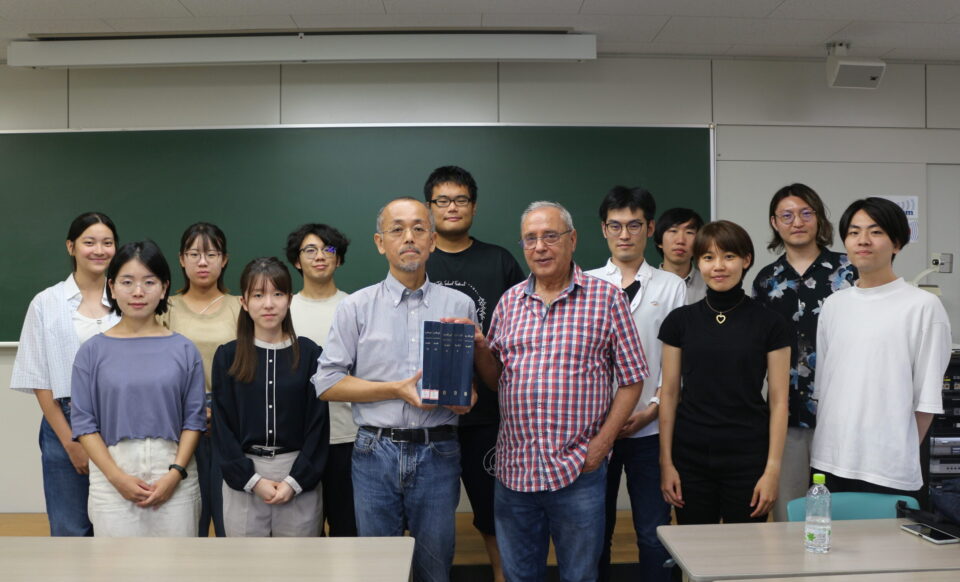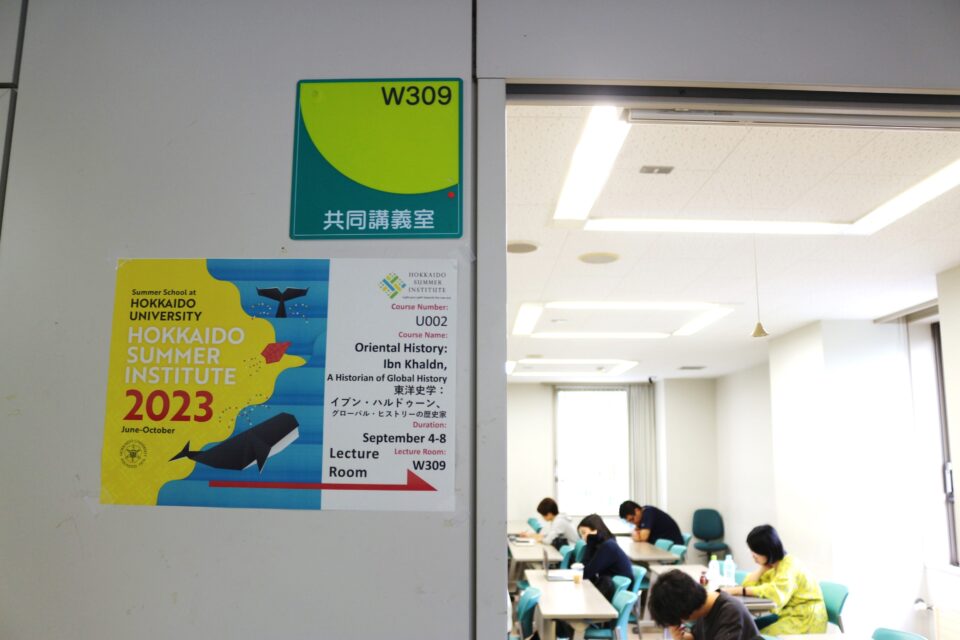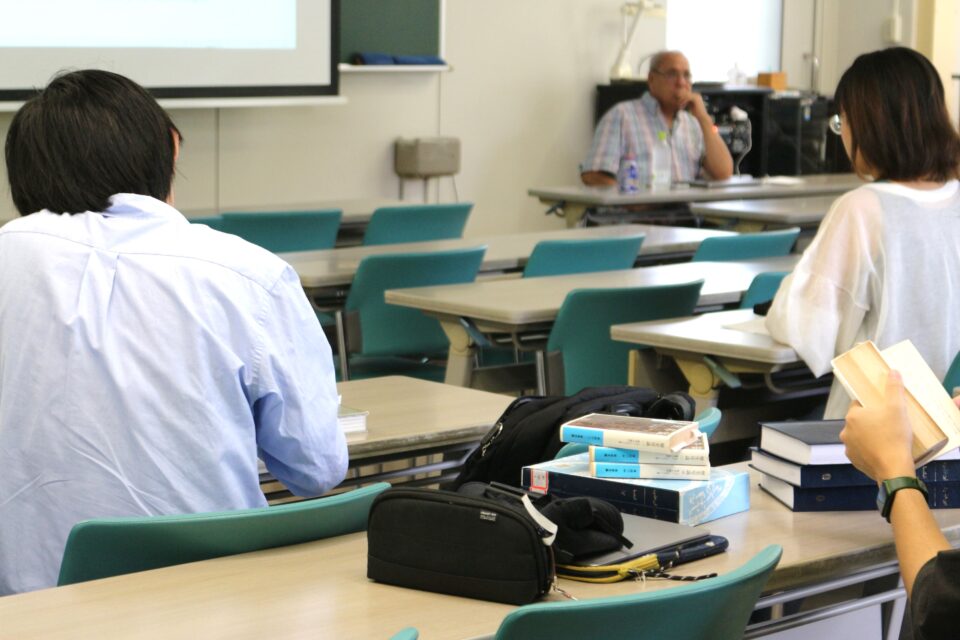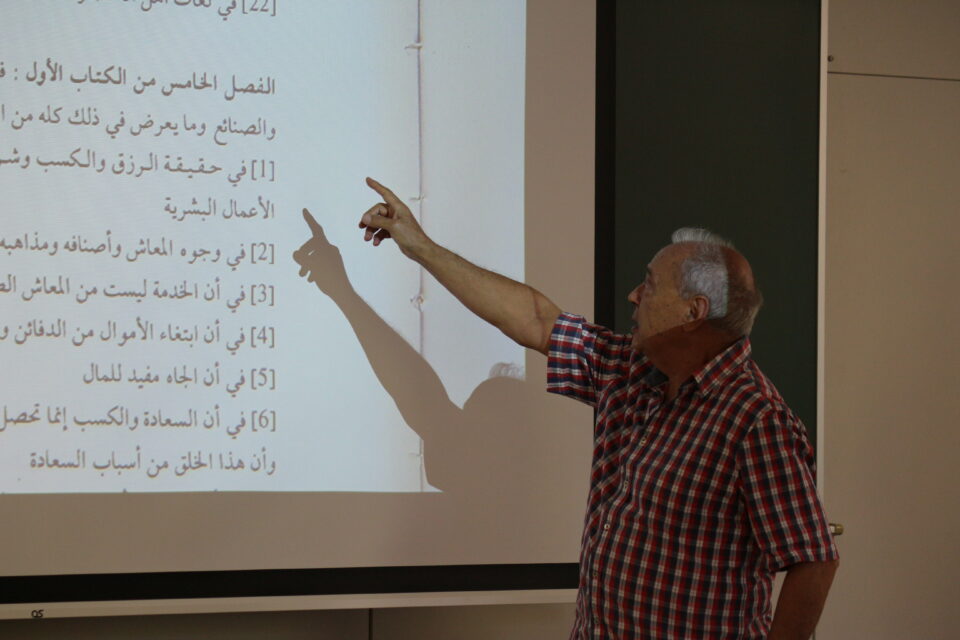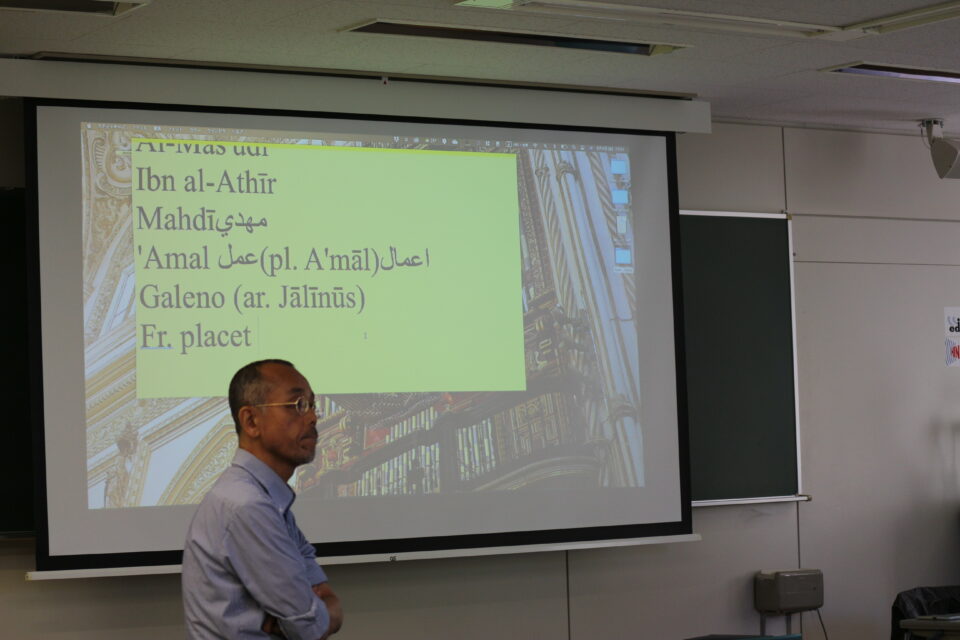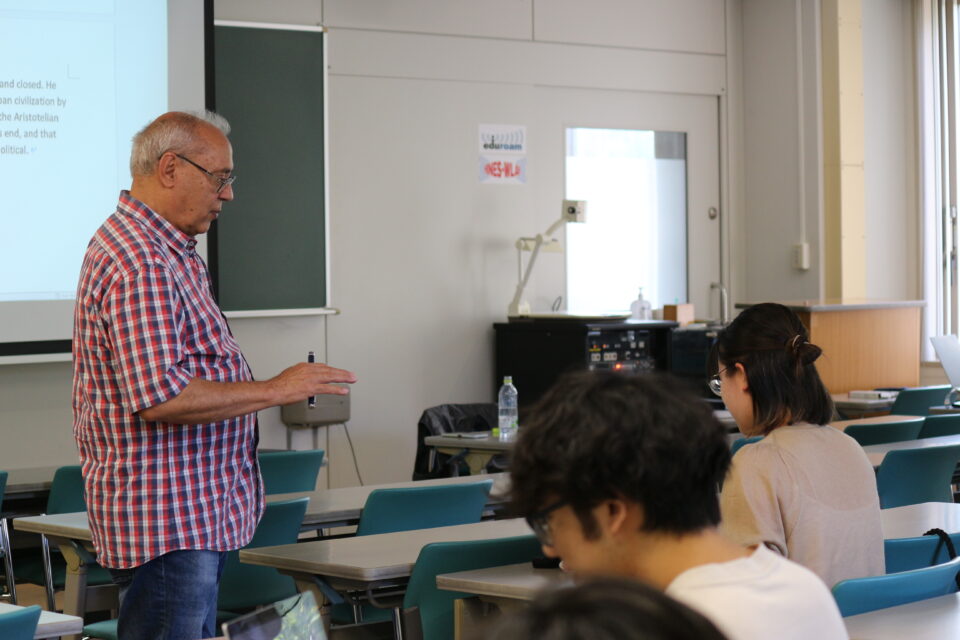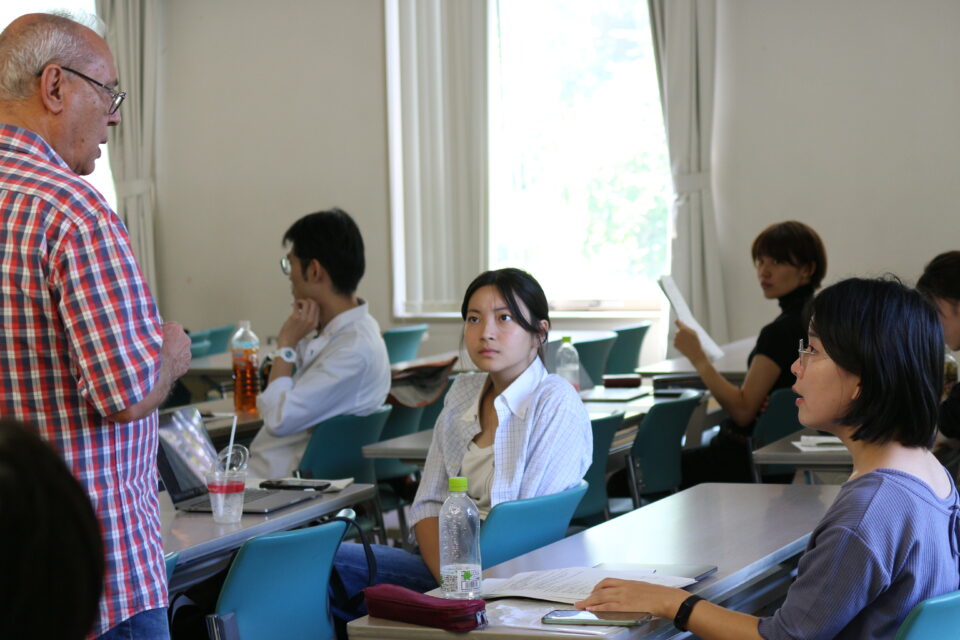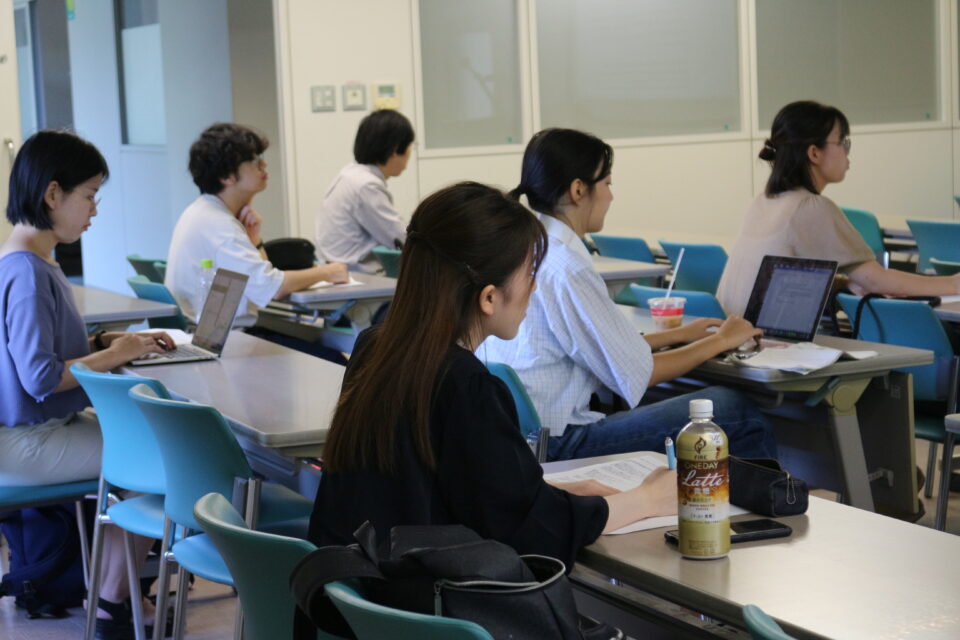From September 4 to 8, the Hokkaido Summer Institute (HSI) 2023 course “Oriental History: Ibn Khaldûn, A Historian of Global History” was offered by the School of Humanities and Human Sciences.
The course featured Professor Emeritus Abdesselam Cheddadi of Mohammed V University in Rabat, Morocco, a globally renowned authority on Ibn Khaldûn (1332–1406).
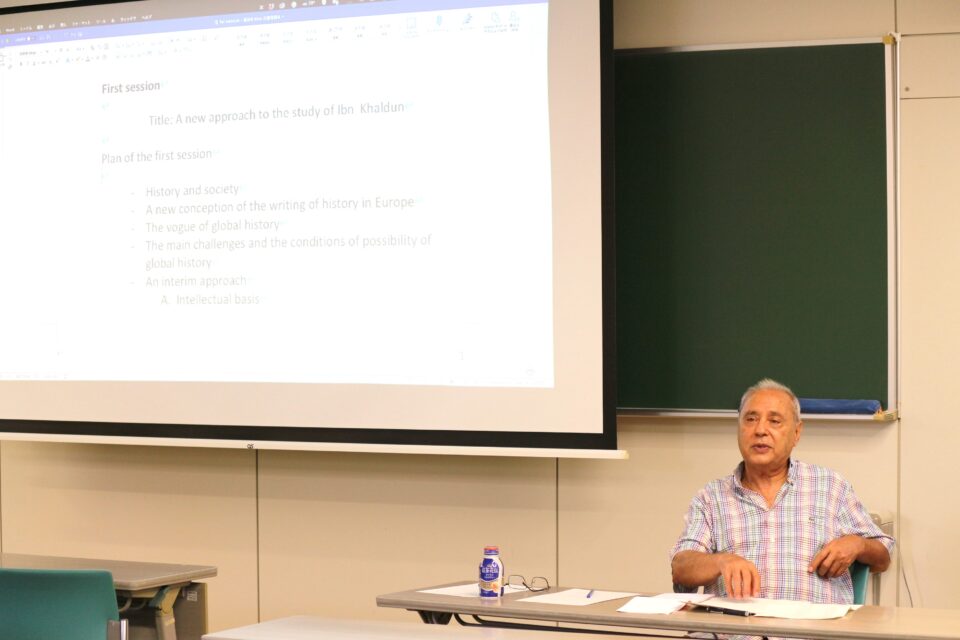
Geared toward undergraduates, this course was aimed at exploring the contributions that Ibn Khaldûn made in his writings on the concept and history of global history in the premodern era. The course also discussed the significance of comparisons with modern concepts of global history. The course aimed to provide students with an opportunity to deepen their understanding not only of Ibn Khaldûn himself, but also of Arab historiography in the context of global history.
The course comprised five parts: 1. New approaches to research on Ibn Khaldûn, 2. Revisiting Ibn Khaldûn and his works from the perspective of his time, 3. The academic structure of “Kitāb al-ʻIbar” (The Book of Lessons), 4. Ibn Khaldûn’s general anthropology: The prerequisites of civilization, 5. Ibn Khaldûn’s general anthropology: The foundations of societal functions. Students learned these five parts through three class sessions per day. In the first session each day, Professor Cheddadi delivered a lecture in English, using keywords in English, French, and Arabic. In the second session, Professor Kentaro Sato from the Laboratory of Oriental History, the host lecturer who co-taught the course, explained Arabic keywords that were difficult to explain in English, as well as historical contexts and concepts. In this way, the content of the first session was explained in-depth in Japanese and English to deepen student understanding. The final session of each day centered on discussions based on student comments about the content of the first session, with a focus on English and Arabic keywords. This format of interactions between lecturers and students allowed the students to further contemplate global history.
First, Professor Cheddadi delivered a lecture while referencing original texts. This was followed by an explanation by Professor Sato.
⇩
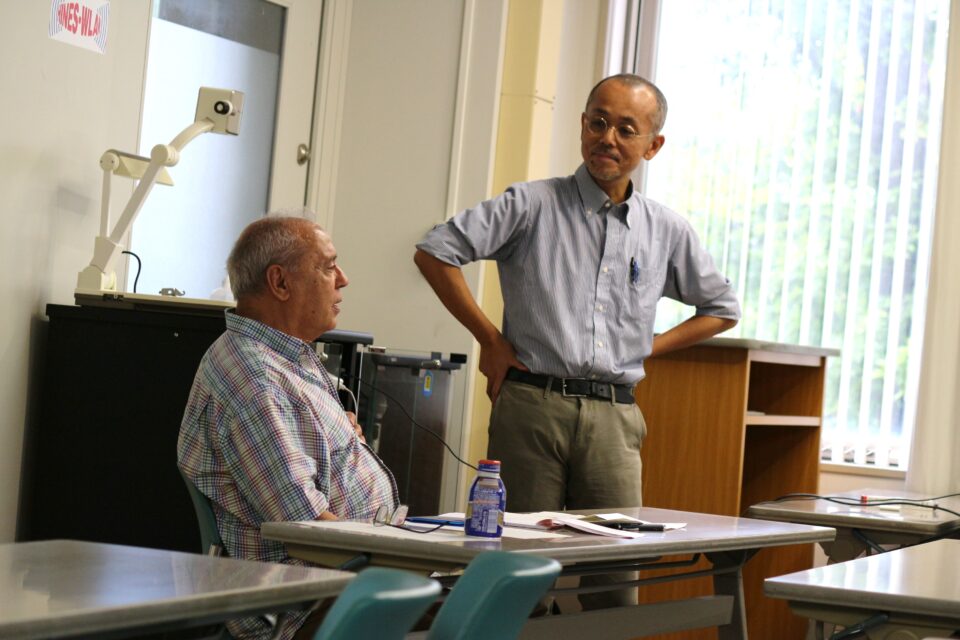
On Day 1, after Professor Sato’s introduction of Professor Cheddadi, students and a teaching assistant (TA) introduced themselves. The approximately 10 students were mostly from the School and Graduate School of Humanities and Human Sciences, but also included those from the School of Law and the School of Fisheries Sciences. This resulted in a diverse assemblage of students with varied backgrounds and perspectives, including students from outside of Oriental history and from outside other humanities and social sciences fields. The TA, a doctoral student from the Laboratory of Oriental History, supported the smooth running of the lectures by assisting with the presentation of materials and offering help to students who encountered difficulties during discussions.
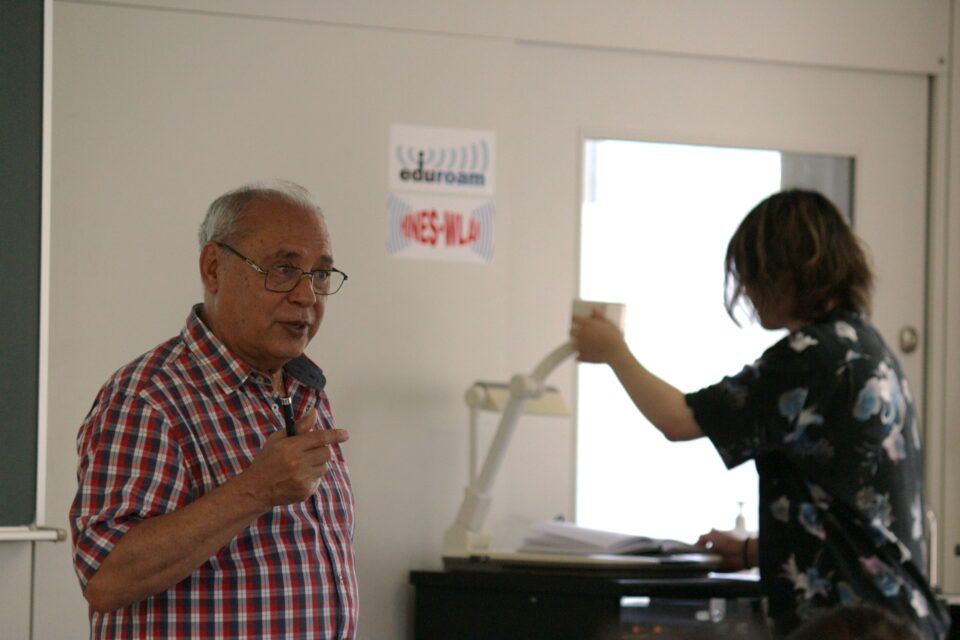
After the students’ self-introductions, Professor Cheddadi asked how history was perceived 50 to 100 years ago compared with its perception in the present, a perception that is characterized by globalization: “What kinds of framework you can choose and use.” “Framework” was a frequently used keyword throughout the five-day intensive course, prompting students to consider what “framework” could or should be used, and why. Professor Cheddadi noted that in historical discourse, “universalism,” “secularism,” and “progress” were “important in Europe, but not in the same way as in other parts of the world.” He emphasized that history had traditionally been viewed within national frameworks, such as British history, German history, and French history, rather than “global history” being equal to “world history.” He stressed that global history itself was still developing and “was not really well defined.” Through discussions, the students repeatedly contemplated two key points: first, global history has yet to be well defined, and second, there is a need to consider history through frameworks other than the histories of Western countries or the histories contemplated within the national frameworks of those countries.
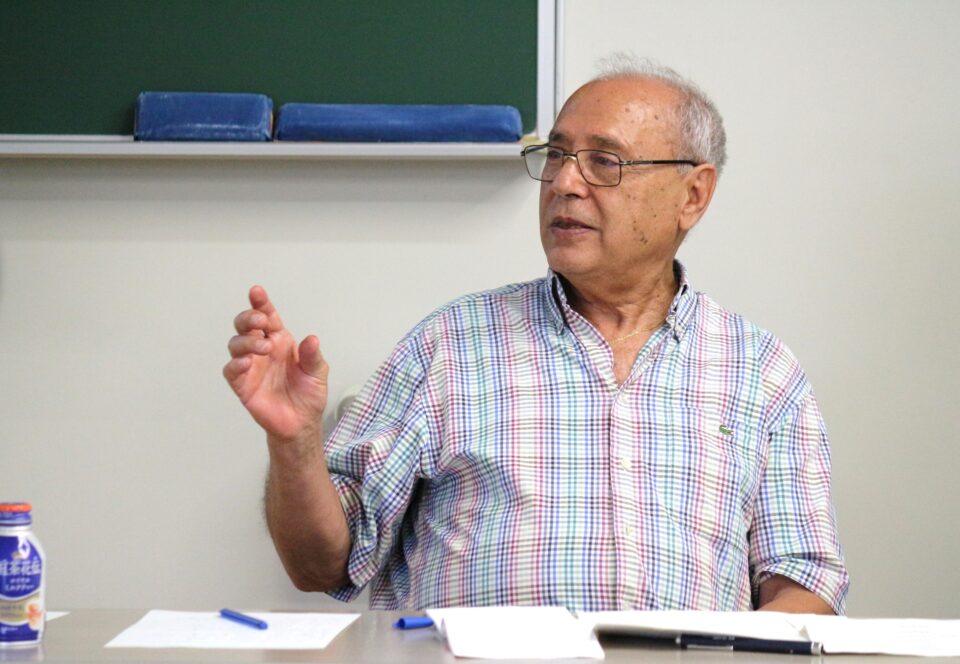
During the lectures, while referring to Ibn Khaldûn’s “The Muqaddimah: An Introduction to History,” Professor Cheddadi explained the historical limitations of perspectives derived from philosophy books written in Greek or Arabic from his era to the present and from Islamic religious books, as well as the limitations of cultural context. Regarding these limitations, he asked students, “What kind of global history should we have in this age?” Also, tarikh, an Arabic word for “history” was used to denote a concept distinct from the Western-centric notion of “history.” By differentiating between “history” and tarikh, which represent different concepts, the students were introduced to a novel approach to understanding history. Professor Cheddadi also stressed that the challenges in global history stem from “political and cultural bias,” rather than “methodological” issues, and underscored the importance of not harboring any “a priori ideas,” encouraging students to consider that “every society has its own history.”
Students who had previously learned world history primarily through Western frameworks and from Christian perspectives gained a valuable opportunity in this course to explore “history” through Arabic frameworks and from Islamic perspectives that they would have little chance to learn about in regular classes or daily life. This multifaceted interpretation of history seemed to be a truly fresh experience for the students.
After four years since “Oriental History: Modern Arab History” HSI 2019 was held, we could invite specialist from Morocco again for the HSI 2023 course “Oriental History: Ibn Khaldûn, A Historian of Global History” . The course offered an exceptional opportunity for students to learn in English about Ibn Khaldûn, who was a distinguished historian of the medieval Islamic world and a cultural anthropologist and sociologist, delving into his concept of global history, guided by a globally recognized researcher in the field.
